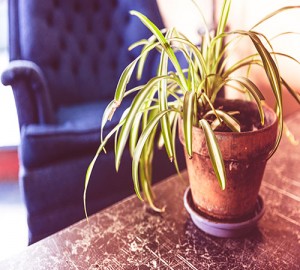 If you are considering rehabilitation for your addiction, you are probably wondering:
If you are considering rehabilitation for your addiction, you are probably wondering:
Treatment options for drug addiction range from outpatient clinics to intensive inpatient rehabilitation. Additionally, the methods of addiction rehabilitation vary from one treatment center to the next.
If you are seeking addiction treatment for yourself or a loved one, you will want to find a rehab that will set you up for a successful recovery. Read on to learn how to interpret drug rehab success rates so you can find a clinic that offers the best chance for recovery.
Sadly, a high percentage of patients who undergo addiction treatment will inevitably relapse. Addiction is a chronic disease, with relapse rates similar to those for other chronic diseases such as diabetes or hypertension. This means that even after rehab, you’ll need ongoing addiction management to prevent a relapse.
According to drugabuse.gov, the percentage of substance abuse patients who receive treatment and later relapse ranges from 40 to 60 percent.
Drug rehab success rates can be difficult to make sense of because there are different ways of measuring success in addiction treatment and the data can be hard to track. In a broad sense, the rehab could be considered successful if the patient doesn’t relapse.
But how many years after treatment does this rehab clinic follow their former patients? Or are they measuring success as simply the percentage of their patients that complete the treatment plan?
Rather than blindly trusting a rehab center that claims they have, for example, an 80% success rate, it’s important to ask questions about how they came up with this figure.
It’s easy to find online lists of drug rehabs with the highest success rates, but as mentioned, these rates can be misleading. Rather than focus on the numbers a clinic advertises, it makes more sense to look at the specifics of how treatment is administered.
The following types of drug rehab are associated with stronger recovery outcomes for patients – i.e., a reduced chance that you’ll relapse after the program:
Instead of focusing on numbers that don’t tell the whole story, here are some ways to tell if your drug rehab treatment is successful:
Your mood and well-being improve: drug use interferes with your brain chemicals, altering your mood and causing you to feel depressed or anxious. With time, a successful drug treatment program will leave you feeling better physically and mentally.
Your performance at work or school improves: a drug addiction means time not spent working or studying usually. Using drugs and recovering from misuse takes considerable time away from things that should be priorities. When you do better at work or school this is generally indicative that your priorities are in their proper place.
Your relationships improve: drug addiction often leads to isolation from friends and family. As you become sober and the impulse to hide from others dissolves, you’ll end up spending more time with friends and family and those you meet through drug rehab.
The time between your relapses increases: relapses are, in fact, a normal part of the sobriety process, affecting roughly half of those who complete drug rehab treatment. Relapse should not be seen as a failure, only that you might need additional drug treatment to find long-term sobriety. Longer and longer stretches of time between your relapses are an indication that you’re learning to handle stress properly and avoid triggers.
So, when evaluating different rehabs, make sure you find out whether the center has these necessary components that help predict success, and learn about the specific treatment therapies used (instead of getting hung up on “success rates”). You might also want to tour the facility and talk to others who have completed the program.
We’re happy you’ve taken the first step to recovery, which is looking into treatment options. We encourage you to start calling around and to consider Alpine Recovery Lodge, a premier residential drug rehab center in Alpine, Utah. We offer all the components of successful addiction treatment, including a dual-diagnosis program for individuals with drug addiction and co-occurring disorders.
Contact us today to learn more.
